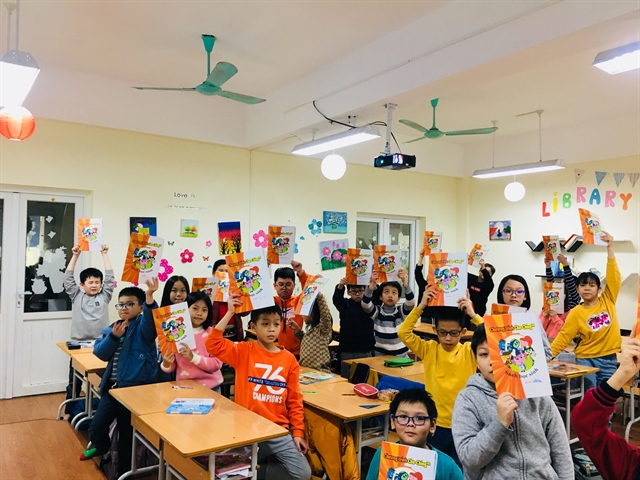Viet Nam ranks third among Asian countries in the Money Parenting Confidence Index, but many parents are concerned about the lack of money parenting skills and reliable sources of reference in teaching kids how to use money effectively.

Viet Nam ranks third among Asian countries in the Money Parenting Confidence Index, but many parents are concerned about the lack of money parenting skills and reliable sources of reference in teaching kids how to use money effectively, a survey by Eastspring Investments, part of Prudential plc, has found.
The survey of 10,000 parents in nine Asian markets found 95 per cent agreeing that it is very important to teach their children how to use and manage money.
But just over half are unsure if they have been successful teachers and role models for their children and 43 per cent want to learn more about financial management to become a better role model and teacher.
Viet Nam ranked third in the index behind Indonesia and Thailand. The index was developed by Eastspring to gauge the confidence level of parents in educating their children on money.
Prudential then undertook qualitative research on the perceptions and concerns of Vietnamese parents with regard to money parenting, and found two groups of parents with opposite views.
Traditional parents believe that teaching children how to manage money at an early stage is not as important as helping them achieve good academic performance, while modern parents encourage their kids to develop soft skills, especially money management.
But both groups engage their children in shopping activities, family spending and charitable activities, and the distinction lies in the fact that modern parents tend to allow their kids to own and manage money three or four years earlier.
Both reckon that children will have negative attitudes and behaviours unless they receive proper lessons in how to understand and appreciate the true value of money.
Significant barriers include the dearth of formal sources of reference and a healthy environment where kids can properly practise.
Talking about the chief purpose of the research, Phuong Tien Minh, CEO of Prudential Vietnam, said: “Prudential's goal is to build a solid foundation for children and equip them with basic financial knowledge from an early age so that they can become financially independent and successful.”
He added that to achieve the goal the company provides an open source of knowledge and skills, the ChaChing project that schools and parents could easily adopt.” — VNS





